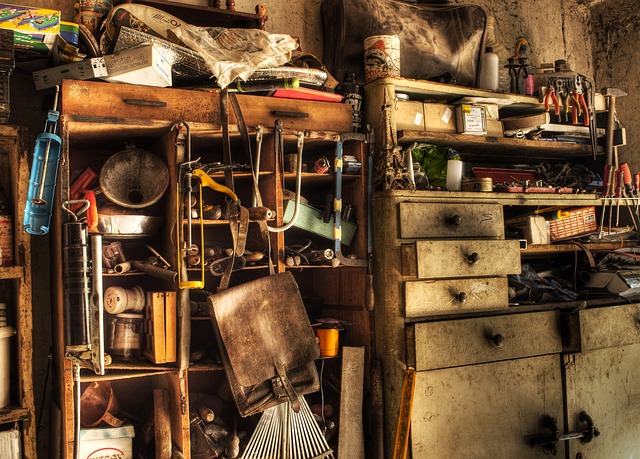
There is little more frustrating than getting your home ready for market and waiting for the offers to roll in ... only to realize that actually, those offers aren't coming as quickly and in as high a volume as you'd like.
Even in a seller's market, there are lots of reasons why buyers could be bypassing your home for another. Before you give up entirely, ask yourself whether you're making one of these (very common) seller mistakes and what you'll need to do to fix them.
The price isn't realistic
This is by far the biggest reason why a home lingers on the market, especially in an environment where other homes seem to be flying off the shelves (so to speak). Here is the harsh truth: Buyers are going to be looking at lots of homes besides yours. If your home isn't aligned with the rest of the market, why would a buyer spend any time considering it? After all, they just saw several better deals online ... and are about to see several more.
Homes that are priced too high tend to linger on the market, which also makes buyers wonder if there's something wrong with it -- that's just human nature. And even if you reduce the price, you're missing the huge opportunity of making a splash with your (correctly priced) home when it's first listed.
Nobody starts a bidding war on an overpriced home. So don't even think about "testing the market" by pricing your home way above fair-market value; it won't work.
It needs some TLC
Maybe the paint is peeling on the outside, or the carpet inside is stained and shabby. It can be a little bit painful to spend money on a house that you're about to leave, but unless the buyer is specifically looking for a fixer-upper (or a home to fix and flip), then it's really worth it to make sure that you've done what you can to help your home look its very best.
If you're not sure what you should leave alone and what needs to be addressed, ask your real estate agent. Agents see all kinds of homes in the neighborhood, and they can give you an idea of whether your home needs a lot of work compared to others or whether you're good to go.
It's too personal
When buyers walk into your house for sale, they're primed to think about what it would be like to live there. Don't ruin their illusion with a parade of family photos down the hallway, a collection of very specific pop-culture items on the bookshelves, monogrammed towels in the bathroom and pillows on the bed, or the giant wedding portrait over your fireplace.
Collect all of the items that make your house look uniquely and irrevocably "yours" and store them at a trusted friend's house or in a storage unit until you're ready to put it all back on display -- in your new home. And don't forget about any wall decals or decorations that might make it difficult for buyers to see themselves inhabiting your home someday soon; it's hard for a buyer to picture a home office or a teenager's bedroom in a child's room that has Winnie the Pooh, Eeyore, and Tigger marching across the walls.
Clutter and lack of cleanliness
Not every buyer is a stickler for cleanliness in his or her own home, of course. But for some reason, other people's messes are always more off-putting than our own.
Cluttered counters, shelves, closets, and rooms evoke a sense of chaos and disorderliness that can actually make the house seem smaller than it really is. So the first step is to remove anything that you think you might not use for a few months, box it up, and stash it somewhere the buyer won't see, whether that's the storage unit where all your personal items are, a friend's garage or somewhere else entirely. Don't forget about furniture: Rooms with fewer items of furniture tend to look cleaner and bigger than rooms that are packed.
And it's well worth it to pay a cleaner to deep-clean your house at least once (if you think you can maintain it yourself) or regularly throughout the sales process. Ask them to pay special attention to baseboards, corners, and other places where dust and dirt collect and multiply.
There's no curb appeal
In an ideal world, when a buyer pulls into the driveway, he or she will get some warm, fuzzy feelings just from the outside of your home. Maybe it's the flowers lining the path, rocking chairs on the porch, or other touches that make them want to go inside -- whatever is causing those feelings, curb appeal is real.
By the same token, if the paint looks kind of dingy, there are brown spots on your lawn, the fence has some broken pickets, and there are dog leavings visible everywhere ... well, can you blame the buyer for feeling like maybe this might not be "the one"?
Power-washing the outside, fertilizing and mowing the lawn, and picking up any unsightly items are a good first step to making the outside of your house feel like a warm embrace when the buyer sees it for the first time.
Kids or pets (or both) are clearly inhabitants
Most people like kids and animals, but that doesn't mean they want to be visibly reminded that kids or pets live in a home they might want to buy. As both kids and pets tend to leave visible reminders of their existence everywhere, it's up to you as the seller to minimize those.
Pick up the toys and confine them to the bedrooms, and make sure that pet hair is vacuumed up from furniture and room corners. If the house smells like dogs or cats, address that well before any buyers walk in -- and it goes without saying that litter boxes should be scooped and dog doo picked up to help your house look its best.
It's too dark
There's nothing like walking into a home you might want to buy only to realize that you can't actually see anything! Everyone enjoys a different level of dimness while lounging around at home, but when you're trying to sell, always remember: brighter is better.
Replace any burned-out light bulbs, open the blinds or curtains, and make sure the house looks bright and welcoming. Buyers will appreciate the effort, and you can always flip that dimmer switch when you come back.
You aren't appealing to all the senses
Well, maybe you don't need to feed your prospective buyers, but it's probably a good idea to consider all the other sense and try to play to them as much as you can.
A lot of these tweaks will help your house look great, so you might not need to do too much more on that end. Why not place some fluffy pillows with a soft blanket on beds or couches that invite buyers to touch them, and open some windows so they can feel a breeze on their skin (when it's seasonally appropriate)?
For the ears, create a playlist of soft, unobtrusive music and play it on repeat before you leave the house. Some agents recommend baking bread or cookies if possible before you walk out the door to help appeal to the sense of smell; an air freshener or scented candles (you can get them flame-free these days!) might be good alternatives if you're not much for baking.
The photos are poor quality
Once you've addressed most of the in-person reasons why a buyer might be bypassing your home, it's time to look at how your home is being marketed -- maybe you just aren't getting enough qualified buyers through the door.
Even though cell phone cameras these days are better than ever, you really shouldn't be using them to list your home. First impressions are just as important as you've heard, and most buyers are going to encounter your home at first through the photos -- they won't be very tempted to come see a house that's rendered in blurry, grainy pictures that are clearly taken by an amateur. (And just so you know: We can all see you -- and your phone's flash -- in that bathroom mirror, which draws the eye much more than your vanity and sink do.)
If your house is in tip-top shape, do it justice in the listing by hiring a professional photographer to capture it. There are photographers who specialize in real estate and can ensure that your home looks as beautiful in the pictures as it does in real life.
There aren't enough photos
Maybe you just got one good shot of the outside and you're calling it good. One question about that strategy: Are you hoping to appeal mostly to buyers who want to pitch a tent on the deck?
This is a big purchase for any buyer, and there are other homes to see besides yours. Most buyers aren't going to be compelled to come look at a house that just has one or two photos -- they want to see exactly what they're thinking about buying well before they book a showing, so they can decide whether or not your house will fit their needs.
It's the norm in this day and age for most listings to have many photos -- several of the outside and kitchen, plus at least one of each other room in the house. Pictures from different angles help them visualize the house and think "yes, this will work," or "no, not for me." But a lack of pictures is going to make every buyer opt for the latter over the former.
The photos don't show the right things
Your decorating and closet-organization skills might be on point, but the truth is that buyers don't really care about your stuff: They want to see the house!
When you're taking pictures, make sure you're capturing the room and not zooming in on the handmade couch cushions, antique grandfather clock or Ming dynasty vase. Although those things are all lovely, they're not going to entice the buyer to come see your house in person ... but plenty of clear pictures of the exterior of the home and the rooms inside will!
Repairs are necessary
When a buyer is getting ready to spend a huge chunk of money on a home (possibly the most they've ever spent at once), then they aren't going to be too excited about turning around as soon as the home is theirs and making major repairs.
If the roof needs replacing or the furnace is about to go on the fritz, it's never easy to spend that money yourself when you're about to leave the home for another. But if you don't, it might end up languishing on the market for longer than you'd like -- and in some markets, it's not going to sell at all.
Your agent is inexperienced (or just plain bad)
It's an agent's job to market your house to a wide range of qualified buyers so that you can capture the ones who are really interested (and perfect for the place). But like any other profession, there are excellent agents, competent agents ... and not-so-great agents.
If your agent can't articulate a plan for how to elevate your home's profile and get qualified buyers in the doors, then it might be time to look for a new agent.
The marketing isn't reaching the right people
You already know that some people prefer Coke over Pepsi, cats over dogs, the beach over mountains. It makes sense to try to attract the kind of buyer who's going to most want to live in your home.
So if your agent is marketing your walkable city studio apartment to families of four, or your four-bedroom in the suburbs to recent college graduates, well, that's probably not going to be very effective. Your agent should have explained the marketing strategy at the listing appointment, but if he or she didn't, ask -- and be prepared to find a new agent if the strategy just doesn't make sense.
The property listing is "meh"
In this era of digital photography, words can often seem like items of secondary importance. But after looking at the photos of your home, buyers are going to check out the listing description to get a sense of what it's like to live there.
A good listing description will help buyers feel like they've walked through the house already. Some of the best include details about where the sellers drink coffee every morning, sit to watch the sunset, and hang out in the evening. Read yours and ask yourself if it makes you want to see the home it describes. If not? Back to the drawing board!
Showings aren't easy to book
Selling a home is pretty inconvenient -- you have to keep it clean and be willing to vacate when a buyer is interested in taking a look.
Some sellers make the mistake of thinking that a hot housing market means they don't need to inconvenience themselves for buyers who want to see a house, but think about what you're doing: You're making it more difficult for a buyer to see your house.
Shopping for a home isn't always fun for buyers, either; remember, they might be looking at four or five homes in a day. If you're not working to accommodate their schedule, then they'll just leave your house off their list.
The listing agent (or seller) is present at every showing
It's not always comfortable to let strangers walk through your house, but insisting on being present (or having your agent present) for all buyer walk-throughs is a huge mistake. It's unusual enough that it will prompt a buyer to wonder what other potentially unreasonable demands you might make, and whatever benefit you think your presence is going to add (someone to answer any questions!) will be far outweighed by the buyer's discomfort with having you look over their shoulder while they walk through the house.
The home is dated
Unless your mid-century modern home is perfectly decked out with '50s-era furniture and decor in an area where buyers crave that look, do yourself a favor and check out some of the other homes for sale on the MLS or on your favorite real estate portal, and then ask yourself: How does my home look by comparison?
Avocado-green appliances in the kitchen, shag carpeting in the bedroom, and mirrored wallpaper might be just to your taste, but you need to appeal to the broadest possible range of buyers. They should be able to see themselves living in your house. And there aren't too many millennials who are going to relish the idea of vacuuming that shag carpeting or using a fridge older than they are.
You're hanging too much confidence on an open house
Open houses can be strategically used to help sell your property, of course, but they aren't the be-all-end-all of home sales. If you're expecting miracles from the open house (and neglecting some of the basics listed above), then remind yourself that often, the people who are most likely to visit an open house -- as opposed to book a private showing -- are neighbors who want to peek inside your home before it sells. A better solution: Make showings more convenient for buyers to request.
There are insurance or loan issues
Insurance and loan issues often go hand-in-hand. Many buyers are going to need a loan before they can spend a huge chunk of money on a house. And a lender is going to want to make sure that the property doesn't have any major issues and is safe to inhabit before they secure that loan.
So if your house has structural issues, is older and potentially constructed with materials that we now know are hazardous, or is located in an area considered "high-risk" because of floods, earthquakes, wildfires, and other natural disasters, buyers might have difficulty securing insurance -- which means their loan isn't going to go through. And limiting buyers to those who can pay all-cash is probably not going to result in a lot of offers.
The title isn't squeaky-clean
Title issues can arise for a variety of issues, and many of them might have predated your residence in the home or might not be your fault at all. But buyers are right to be wary of title problems, and it's probably a good idea to loop in a title company and ask them if yours needs any TLC before you list.
If you have debts and your debtors have placed a lien on your home, for example, that's going to scare off a lot of buyers. There might be boundary or survey disputes, unknown easements, missing heirs from a previous owner -- the list goes on. Do yourself a favor and make sure the title is pristine.
It's just bad timing
The peak homebuying season varies from market to market, and there could be very good reasons why you don't want to list during peak season. But by that same token, if you decide that listing the Wednesday before Thanksgiving is excellent timing ... don't be surprised if buyers don't start paying attention to your property until after the new year.
Your agent should be an expert on local market conditions, so it's always smart to check in concerning the listing timing and make sure that you're taking advantage of buyer attention.
The emotions are sabotaging your efforts
We're all human, and we all form memories that include inanimate objects like cars and houses. It can feel a little bit sad to trade in your first car, for example -- the one that took you and your friends all over town in high school and that you drove away to college. When you live and sleep in a place, those emotions can feel even more intense.
So if one or more of the items on this list seem to be applying to you and your home, it might not be a bad idea to ask yourself why you're making those decisions and whether you really want to sell right now. It's OK to change your mind, or to ask your agent to remind you of all the reasons why you said you wanted to sell during the listing appointment.
____________________________________________________________________________
We’re Here to Help
Reach out if you would like speak to a local Boston expert before getting started or if you have general questions about the market or home buying process!
____________________________________________________________________________
Meet Robert
 Father, Husband, House Flipper, workout enthusiast, Boston-based real estate expert, and Broker & Founder of Boston Trust Realty Group. When I’m not helping local residents sell or buy their dream homes, I’m spending time with my wife and kids, exploring Boston’s bustling and ever-changing neighborhoods!
Father, Husband, House Flipper, workout enthusiast, Boston-based real estate expert, and Broker & Founder of Boston Trust Realty Group. When I’m not helping local residents sell or buy their dream homes, I’m spending time with my wife and kids, exploring Boston’s bustling and ever-changing neighborhoods!











